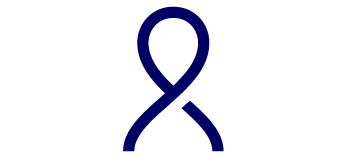Lung cancer kills more people every year than breast, prostate, colon and pancreatic cancer combined. And when lung cancer is detected by traditional methods (meaning you visited your doctor because of an issue and lung cancer was found), there’s an average five-year survival rate of just 15%.
For people with a high risk of developing the disease, though, routine lung cancer screenings can make a big difference.
“By catching the disease in earlier stages, those five-year survival rates jump to 75%. Many of these patients are cured,” says Avi Cohen, M.D., a pulmonologist at Henry Ford Health.
Here, Dr. Cohen breaks down the importance of screening for lung cancer and who should be screened.
The Goal Of Lung Cancer Screening
A lung cancer screening consists of a low-dose CT scan, which uses the least amount of radiation needed to identify nodules in the lungs that could signify cancer. This annual screening – which takes just a few seconds to complete – saves lives.
“Like with other cancer screenings, we are trying to find cancer at its earliest possible stage to improve the likelihood of eliminating the cancer and increasing chances for survival,” says Dr. Cohen “We are finding cancer in about one in 64 people we screen, and we are discovering other issues like coronary heart disease, aortic aneurysms, emphysema, interstitial lung disease and other non-smoking-related conditions earlier than we may have otherwise.”
In fact, Dr. Cohen notes, in 2023, lung screening identified “masses” in about a dozen patients in other areas of the body, including the kidney, thyroid, pancreas, breast and stomach. “These are often harmless (benign) or harmful (malignant). Just like when you find a strange bump on your skin, you want to know what it is, so more testing is needed. It’s just a sign that we need to investigate further to keep you healthy,” says Dr. Cohen.
Who Should Be Screened For Lung Cancer
While current and former smokers are at greatest risk for lung cancer, your doctor will work with you to determine if early detection screening makes sense for you. Not all current or former smokers need a CT scan to screen for lung cancer.

Cancer Care At Henry Ford
Lung cancer screening CT scans are currently recommended for those who:
- Are ages 50 – 77
- Have no signs or symptoms of lung cancer
- Have smoked at least one pack a day for 20 years or more (20 pack-years) or the equivalent (for example, you may have smoked two packs a day for 10 years)
- Are a current smoker or has quit smoking within the last 15 years
- Have not had a chest CT scan within the past 12 months
If the screening does not detect any abnormalities, high-risk patients will continue to get screened once a year for as long as necessary.
“If the screening detects something suspicious, patients may return for a follow-up screening in 3-6 months. For those who have abnormalities, our team will work with the patient to immediately schedule a PET scan and other follow-up appointments,” says Dr. Cohen.
How Those At Risk Can Reduce The Likelihood Of Developing Lung Cancer
Lowering your lung cancer risk – and ensuring you have the best outcome if you’re diagnosed with lung cancer – all comes down to this: Don’t smoke. And if you do smoke, quit. Avoid secondhand and thirdhand smoke as much as you can.
“Smoking is the most significant risk factor for the development of lung cancer, and it’s also the culprit of other conditions like heart disease,” says Dr. Cohen.
Reviewed by Dr. Avi Cohen, a pulmonologist who sees patients at Henry Ford Medical Center - Taylor.



